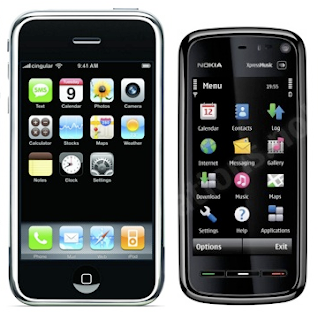RCS DevChallenge...carriers aiming a new paradigm?
 The GSMA launched a new competition, the RCS DevChallenge trying to boost mobile and pc solutions based on RCS specifications.
The GSMA launched a new competition, the RCS DevChallenge trying to boost mobile and pc solutions based on RCS specifications.
Rich Communication Suite is perhaps the last chance of carriers to keep a key role (not exclusive) in the solutions based communication market and avoid to become finally a mere dumb pipe.
The idea is about combining a lot of experiences around the address book, allowing to combined voice call with additional media sharing possibilities (audio files, live videoshare, instant messaging, etc).
The powerful Presence feature (IETF, 3GPP and OMA specs) is enabling a lot of rich "use cases always on" not being intrusive. Then Social Media interaction, CRM info from your suppliers, user generated content and distribution can be "re-invented" using a common interface, the RCS client. A compatible multi-platform RCS client, backed from powerful data core and IMS, coming as a native feature even in low-mid tier handsets, with API's to create clients and extensions (as app or web based) for personal computers will make RCS as successful as SMS.
a) most of devices enabled
b) a common interface being used for a lot of different use cases (no laziness to learn how to use, little effort, lots of possibilities).
We hope carriers take RCS seriously and forget their traditional trial/deploying times and push the accelerator. Solutions based on particular apps, not always multi-platform are being launched everyday, app-stores being opened...are not the win-win-win scenario. If services are not compatible for all types of users making difficult to arrive to critical mass of users, and when most of users reject the idea of installing an application and learn it for each communication experience they want to try.
The paradigm of "only carrier owned" services was not successful, carriers can not think and flawless execute all the use cases.
The opposite paradigm based on mere dumb pipe carriers and a ecosystem of applications with no standards and compability (the current one) is not being successful, it is not including the most of users.
A new paradigm is needed. It will be relying on both approaches, openness and also standarized enablers being shared to develope use cases on the top.
Of course, Solaiemes backs RCS, we will participate in the contest, our vision from the beginning was about communication services, using standard features, considering IMS as a very good enablers and being our first product, LIVESERVE, using combination services (videoshare).
Carriers, we look forward your feedback and positive collaboration.






